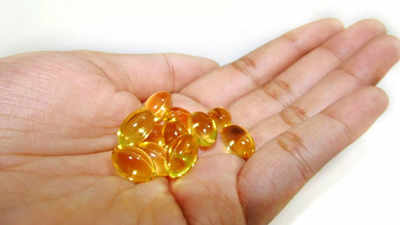Vitamin D deficiency has been linked with deterioration of bone and muscle health, which is believed to increase the risk of falls and fractures. This is the reason health guidelines recommend vitamin D and calcium at daily doses of 400–800 IU and 800–1200 mg, respectively, in patients with low bone mineral density (BMD) and at high risk of fractures.
However, a new draft recommendation from the US Preventive Services Task Force, has said that Vitamin D does not reduce the risk of falls or fractures in generally healthy older adults.
The task force has advised older adults including men not to solely rely on supplemental vitamin D and calcium for preventing fall and fracture risk. Although, it’s advised for older adults to take these supplements for overall health, but take additional measures to prevent their risk of falling.
This isn’t the first time the task force has made a similar recommendation. In 2018, the task force advised against daily supplementation with 400 units or less of vitamin D and 1,000 milligrams or less of calcium for the primary prevention of fractures in postmenopausal women. But at that time there wasn’t enough evidence to make a recommendation for the primary prevention of fractures in men.

The task force has proposed a new recommendation advising men aged 60 and older not to take supplements. It also removes advice on specific doses. This recommendation isn’t final yet but will be open for public comments on the task force’s website until January 21. A draft review of the evidence will also be available.
Dr. Goutham Rao, chair of the Department of Family Medicine and Community Health and chief clinician experience officer for the University Hospitals Health System in Cleveland, Ohio said that in the earlier recommendation in 2018, they didn’t have enough male participants in the studies and now there have been enough men to reach the current conclusion.
“The other thing is that there were some questions about whether high doses might be beneficial of vitamin D and calcium,” Rao said. “But what we found is that there was no dose in our most recent recommendation that was associated with any benefit.”
The expert said that Vitamin D is a vital nutrient and helps the body absorb calcium, and benefits the immune system, the brain and muscle performance, among other functions.
“One of the key messages we need to get out there is nobody is suggesting that you not take vitamin D and calcium, because the National Academy of Medicine has specific recommendations for how much vitamin D and calcium you should have in your diet or through supplements on a daily basis, and it’s very important for bone healthfor brain health, for all sorts of things,” he said. “It’s just with respect to fractures and falls that we didn’t see the benefit.
The task force also found that supplementation with vitamin D with or without calcium can increase kidney stones risk slightly, as calcium is a key component of most kidney stones.

What studies have said about Vitamin D supplements
Daily vitamin D dose of 800 to 1,000 IU was the most probable way to reduce the fracture and fall risk. Further studies designed with various regimens and targeted vitamin D levels are required to elucidate the benefits of vitamin D supplementssaid a study published in Endocrinology and Metabolism.
Vitamin D3 supplementation did not result in a significantly lower risk of fractures than placebo among generally healthy midlife and older adults who were not selected for vitamin D deficiency, low bone mass, or osteoporosis, as per The New England Journal of Medicine homepage.
A study published in JAMA Network showed no significant association with risk of any fracture or of hip fracture. In contrast, daily supplementation with both vitamin D and calcium (6 randomized clinical trials with 49 282 participants) was associated with a 16% reduced risk of hip fracture.






